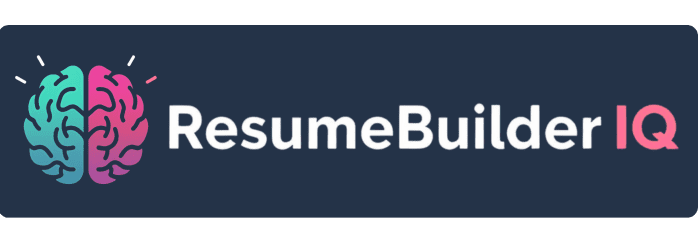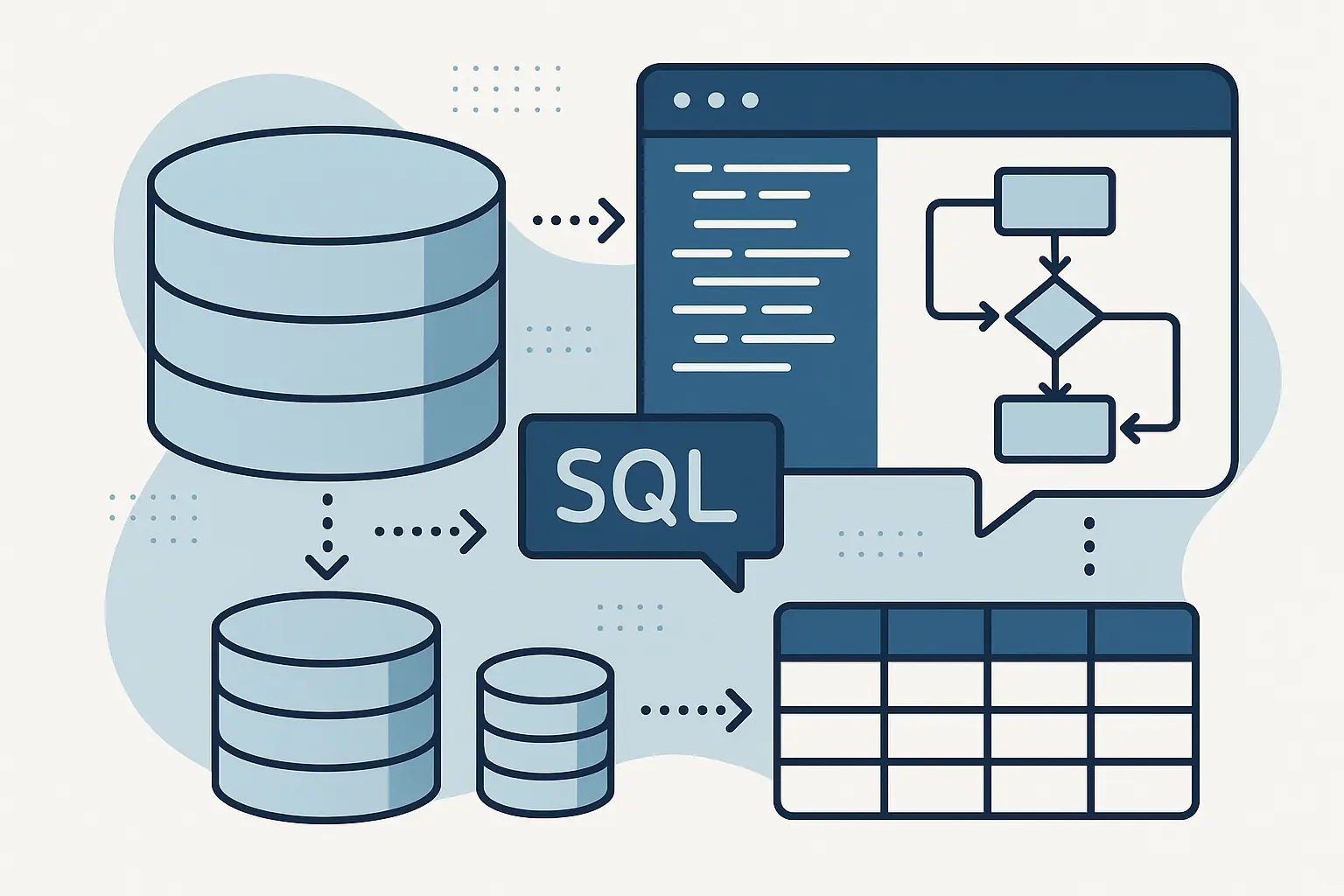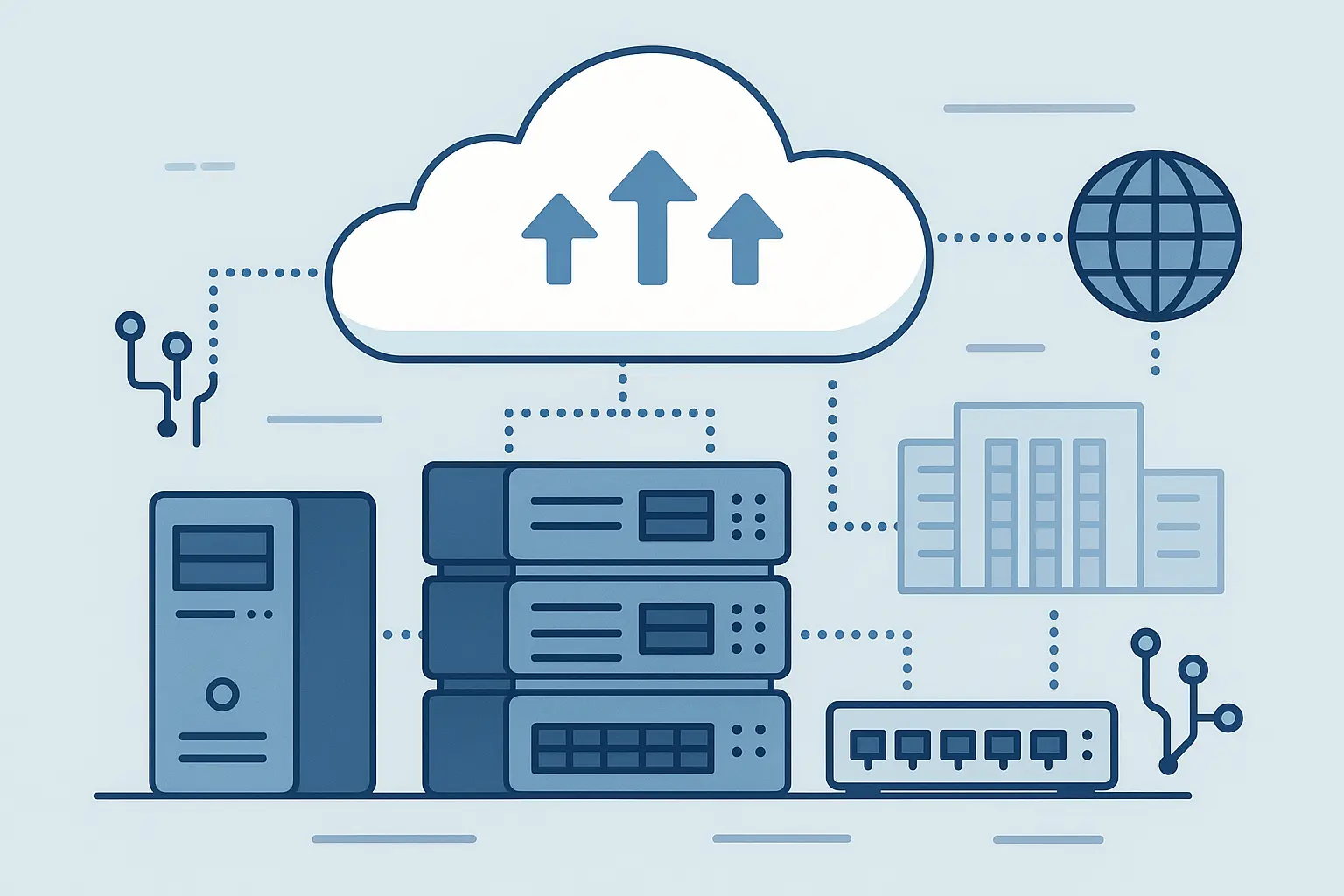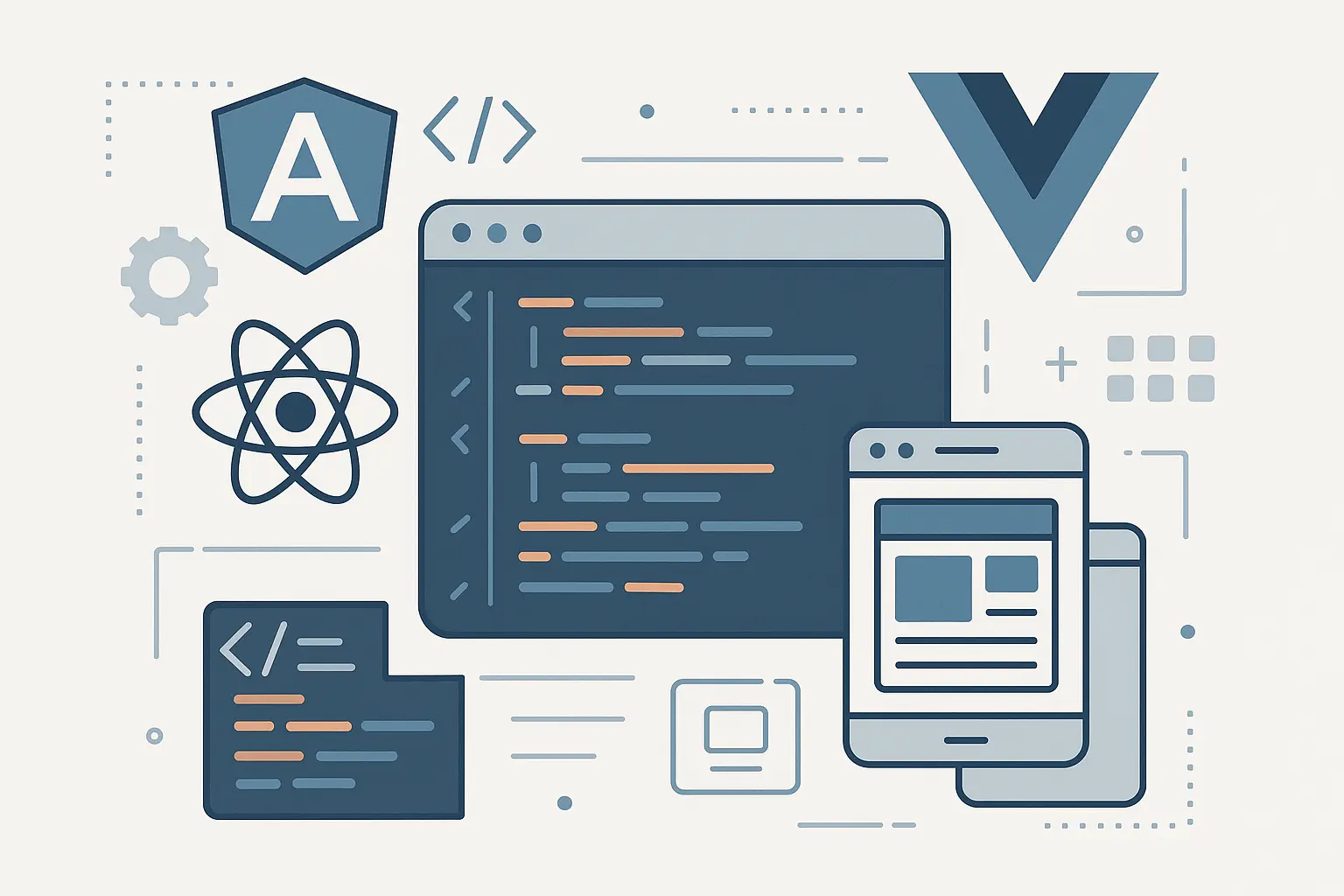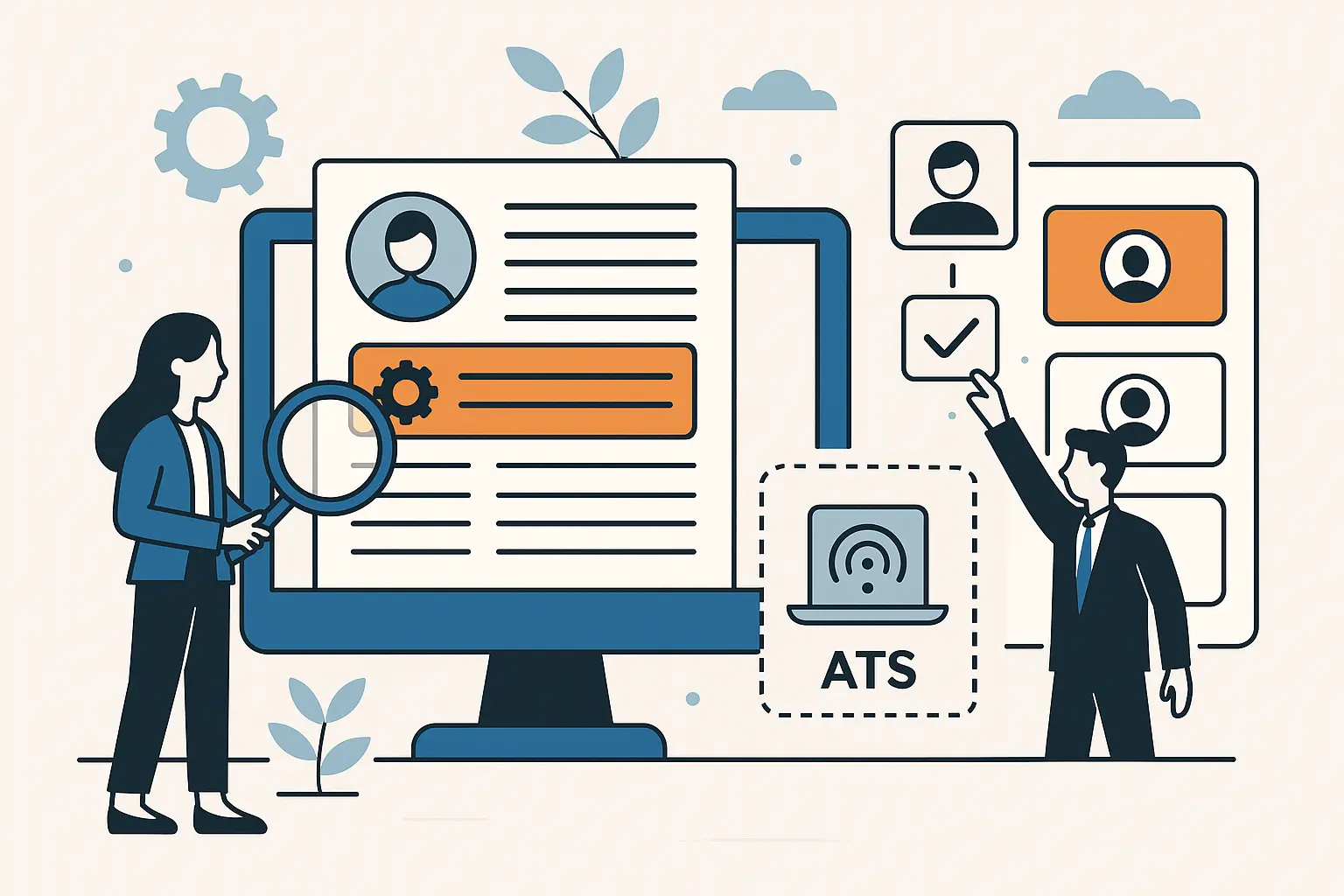25 Technical Skills That Will Make Your Resume Irresistible to Employers

My friend Sarah spent months sending out resumes with her marketing degree and getting crickets. Zero interviews. Then she spent a weekend learning Google Analytics and added SQL to her skill set. Suddenly, her phone wouldn’t stop ringing with job offers. That’s when it hit me—technical skills aren’t just nice-to-have anymore. If you’re wondering how to stand out, focusing on the right technical skills for resume success is your ticket to getting noticed.
Companies are going crazy for tech tools right now—they’ve increased their SaaS usage by 76% in the last year alone. Everyone wants people who can actually use this stuff. Whether you’re in healthcare, finance, or even running a food truck, the right technical skills for resume building can turn your application from invisible to impossible to ignore.

Table of Contents
- Strategic Considerations for Technical Skill Selection
- Data Science & Analytics Powerhouse Skills
- 1. Python Programming Mastery
- 2. SQL Database Management
- 3. Machine Learning & AI Implementation
- 4. Data Visualization Excellence
- 5. Statistical Analysis & R Programming
- Cloud Computing & Infrastructure Expertise
- 6. Amazon Web Services (AWS) Proficiency
- 7. Microsoft Azure Competency
- 8. Docker & Containerization
- 9. DevOps & CI/CD Pipeline Management
- Software Development Fundamentals
- 10. JavaScript & Modern Framework Development
- 11. Java Enterprise Application Building
- 12. Version Control with Git
- 13. API Development & Integration
- 14. Agile Development Methodologies
- Cybersecurity & Compliance Mastery
- 15. Network Security & Firewall Management
- 16. Identity & Access Management Systems
- 17. Regulatory Compliance Frameworks
- 18. Penetration Testing & Vulnerability Assessment
- Digital Marketing & Analytics Prowess
- 19. Google Analytics & Tag Manager
- 20. Search Engine Optimization (SEO)
- 21. Marketing Automation Platform Management
- 22. Social Media Analytics & Management
- Emerging Technology Leadership
- 23. Blockchain & Cryptocurrency Systems
- 24. Internet of Things (IoT) Development
- 25. Advanced AI & Natural Language Processing
- Maximizing Your Technical Skills Impact
TL;DR
- Pick technical skills smartly—focus on what actually matters for the job you want, not every cool thing you’ve heard of
- Data science skills like Python, SQL, and machine learning are gold right now, and they work in way more industries than you’d think
- Cloud computing knowledge (AWS, Azure, Docker) isn’t just for IT anymore—it’s basic business literacy
- Software development skills are your Swiss Army knife—they open doors everywhere
- Cybersecurity skills are exploding as companies finally realize they need to protect their digital stuff
- Digital marketing technical skills make you a unicorn—someone who gets both the creative and analytical sides
- Emerging tech like blockchain and AI shows you’re thinking about tomorrow, not just today
- Quality beats quantity every time—6-15 carefully chosen skills that tell your story will beat a random list of 50
Strategic Considerations for Technical Skill Selection
Look, I get it. The word “technical” can be intimidating. You might be thinking, “I’m not a programmer!” But here’s the thing—you don’t need to be. These skills are for everyone, whether you’re in marketing, sales, HR, or even running a food truck.
Here’s the deal with picking technical skills: Ask yourself three simple questions:
- Will this actually help me do the job I want?
- Are companies actually looking for this skill?
- Can I talk about it in an interview without breaking into a cold sweat?
Understanding the importance of ATS-friendly resume formatting becomes crucial when presenting your technical skills for resume visibility so that both automated systems and human recruiters can easily identify and evaluate them.
The biggest mistake people make is listing every skill they’ve ever touched. Don’t do that. Your resume isn’t a participation trophy case. It’s a highlight reel of your best stuff.
| Selection Criteria | Weight | Key Questions to Ask |
|---|---|---|
| Role Relevance | 40% | Does this skill directly support the job requirements? |
| Industry Demand | 25% | Is this skill experiencing growth in my target sector? |
| Proficiency Level | 20% | Can I confidently demonstrate this skill in interviews? |
| ATS Optimization | 10% | Does this skill match language in job postings? |
| Future-Proofing | 5% | Will this skill remain relevant as technology evolves? |
Think about it like building a wardrobe. You want pieces that work together, fit well, and make you look good. Same with technical skills. They should complement each other and tell a coherent story about who you are professionally.
And please, only include skills you can actually use. If you put “Advanced Excel” on your resume, you better be able to write a VLOOKUP formula in your sleep. Interview questions will expose exaggerated skills faster than you can say “pivot table.”
Data Science & Analytics Powerhouse Skills
Data skills are like a Swiss Army knife for your career. Doesn’t matter if you’re in healthcare, retail, or running a dog-walking business—if you can make sense of numbers and turn them into insights, people will pay attention.
Companies are drowning in data but starving for insights. That’s where you come in. You don’t need a PhD in statistics to be valuable here. You just need to know how to ask the right questions and find the answers in all that data.
What makes these skills so powerful is their immediate impact. While other departments are still debating strategy, you’re showing up with actual evidence of what works and what doesn’t.
1. Python Programming Mastery
Look, Python might sound intimidating, but it’s actually the most beginner-friendly programming language out there. Think of it as the golden retriever of coding languages—friendly, reliable, and surprisingly capable of doing complex stuff.
Here’s the thing about Python: it reads almost like English. While other programming languages look like someone sneezed on a keyboard, Python makes sense. You can literally write a line that says “if temperature is greater than 80, turn on air conditioning” and it works.
The real magic happens with Python’s libraries. It’s like having a toolbox where someone already built the exact tool you need. Need to crunch numbers? There’s pandas. Want to make charts? Matplotlib’s got you covered. Building AI models? TensorFlow is your friend.
Remember Maria? She wasn’t a programmer when she started. She was just tired of spending her entire Monday morning copying data between spreadsheets. One YouTube tutorial later, she wrote her first Python script. Sure, it took her three hours to write something that saved her 30 minutes. But the second time? She was saving hours every week.
Your Python expertise should focus on the libraries that actually matter for business: pandas for data wrangling, matplotlib for visualization, and requests for grabbing data from APIs. Don’t worry about memorizing syntax—even experienced programmers Google stuff all the time.
2. SQL Database Management
SQL is basically the language you use to talk to databases. And before you roll your eyes thinking “I don’t work with databases,” let me stop you right there. If your company has customer information, sales data, or even a simple contact list, that’s living in a database somewhere.
Think of SQL like being able to ask really specific questions to a very organized librarian. “Show me all customers in California who bought something in the last 30 days and spent more than $100.” That librarian (the database) comes back with exactly what you asked for.
The best part? You don’t need to be a database administrator to use SQL. Marketing people use it to pull campaign data. Sales folks use it to track their pipeline. HR uses it for headcount reports. It’s everywhere, and once you know it, you’ll wonder how you ever lived without it.
SQL sounds intimidating, but it’s basically just a way to ask databases questions. Think of it as Google search for company data. “Hey database, show me all customers who bought something last month.” That’s SQL.
Your SQL skills should cover the basics: SELECT statements for pulling data, JOINs for combining information from different tables, and basic functions for counting and summing. Master those, and you’re already more valuable than most people.
3. Machine Learning & AI Implementation
Okay, before you panic and think you need a PhD in computer science—you don’t. Machine learning is just a fancy way of saying “let the computer find patterns in data that humans would miss.”
Here’s a simple example: Netflix recommending shows you might like. That’s machine learning. Amazon suggesting products. Machine learning. Your email filtering out spam. Yep, machine learning.
You’re not building Terminator here. You’re building tools that help businesses make better decisions. Maybe it’s predicting which customers are likely to cancel their subscription (so you can reach out first), or figuring out the best time to send marketing emails.
The tools have gotten so user-friendly that you can build your first machine learning model without writing a single line of code. Platforms like Google’s AutoML let you upload data, click a few buttons, and boom—you’ve got a working model.
Focus on understanding the business applications rather than the mathematical theory. Know when to use different types of models and how to evaluate if they’re actually working. That practical knowledge is worth more than being able to derive algorithms from scratch.
4. Data Visualization Excellence
Data visualization is just storytelling with charts instead of words. And trust me, your boss would rather look at a colorful dashboard than read a 20-page report full of numbers.
Think about it—when was the last time you got excited about a spreadsheet? Now think about the last time a good infographic made you stop scrolling on social media. That’s the power of visualization.
Tools like Tableau and Power BI have drag-and-drop interfaces. It’s like playing with digital Legos, except instead of building castles, you’re building charts that make people go “Oh, now I get it!”
The secret sauce isn’t knowing every chart type—it’s knowing which story you’re trying to tell. Are you showing a trend over time? Line chart. Comparing categories? Bar chart. Want to show parts of a whole? Pie chart (though please, use them sparingly—data people have strong feelings about pie charts).
Your visualization skills should focus on choosing the right chart for the story, making things easy to understand, and creating dashboards that people actually want to use. Pretty colors are nice, but clarity is king.
5. Statistical Analysis & R Programming
R is like Excel’s overachieving cousin who went to graduate school. While Excel taps out at a few thousand rows, R is over there analyzing millions of data points without breaking a sweat.
Don’t let the academic reputation scare you. Yes, R is popular in universities, but it’s also used by companies like Google, Facebook, and pretty much every pharmaceutical company on the planet.
The learning curve is steeper than Python, I’ll be honest. But if you’re in a field where statistical rigor matters—healthcare, finance, research—R is your best friend. It’s built by statisticians, for statisticians.
Plus, R makes beautiful charts out of the box. Like, magazine-quality beautiful. Your presentations will never look the same.
Focus on the core statistical concepts and the most common R packages: dplyr for data manipulation, ggplot2 for visualization, and the basic statistical functions. You don’t need to become a statistics professor, but understanding confidence intervals and hypothesis testing will set you apart.
Cloud Computing & Infrastructure Expertise
Here’s the thing about cloud computing—it’s not some mystical concept floating in the sky. It’s just using someone else’s really powerful computers instead of buying your own. Like renting instead of buying, but for technology.
Remember when you had to buy CDs to listen to music? Now you just stream Spotify. That’s basically what happened to business computing. Instead of buying servers and hiring people to maintain them, companies just rent computing power from Amazon, Microsoft, or Google.
6. Amazon Web Services (AWS) Proficiency
AWS is like the Home Depot of the internet. Need a computer? They’ve got it. Need storage? Aisle 3. Want to run some fancy AI? They’ve got a tool for that too.
The beauty of AWS is that you only pay for what you use. It’s like having a utility bill for computing power. Need more resources for Black Friday? Spin them up. Slow season? Scale back down.
Don’t worry about memorizing every AWS service—there are like 200 of them and growing. Focus on the basics: EC2 (virtual computers), S3 (file storage), and RDS (databases). Master those three, and you’re already more valuable than 90% of people.
AWS skills show you understand modern infrastructure. You get that businesses need to be flexible, scalable, and cost-effective. Those aren’t just tech concerns—they’re business imperatives.
7. Microsoft Azure Competency
If your company already uses Microsoft Office, Outlook, and Teams, Azure is the natural next step. It plays nice with all the Microsoft stuff you’re already using.
Azure is particularly popular with larger companies because it integrates seamlessly with their existing Microsoft investments. It’s like getting the extended warranty—everything just works together without weird compatibility issues.
Take David from that accounting firm. He wasn’t a cloud expert when he started. He was just the guy who got stuck fixing the printer. But when their on-premises servers started acting up (again), he volunteered to research cloud options. Six months later, he’s the company’s cloud architect with a 35% raise. Sometimes being the person willing to learn new stuff is all it takes.
Focus on how Azure integrates with the Microsoft ecosystem and its hybrid cloud capabilities. Understanding Active Directory integration and how Azure supports existing Windows environments is particularly valuable.
8. Docker & Containerization
Docker solves the “it works on my machine” problem. You know, when code works perfectly on your laptop but breaks when you try to run it anywhere else.
Think of Docker containers like those meal prep containers. Each container has everything needed for one complete meal. You can take that container anywhere—your fridge, your friend’s fridge, your office microwave—and it’s exactly the same meal every time.
That’s what Docker does for applications. It packages up the app with everything it needs to run, so it works the same way whether it’s on your laptop, a server, or in the cloud.
Docker skills show you understand modern application deployment. You get that consistency and reliability matter, and you know how to achieve them. That’s valuable whether you’re deploying a simple website or a complex enterprise application.
9. DevOps & CI/CD Pipeline Management
DevOps is basically about breaking down the wall between the people who build software and the people who run it. Imagine if the kitchen staff and waiters at a restaurant never talked to each other. Chaos, right? That’s what software development used to be like.
CI/CD stands for Continuous Integration/Continuous Deployment, which is a fancy way of saying “let’s automate the boring, error-prone stuff so humans can focus on the interesting problems.”
Instead of manually testing code, deploying updates, and crossing your fingers that nothing breaks, you set up automated systems that do all that testing and deployment for you. It’s like having a really reliable assistant who never forgets a step.
DevOps skills show you understand that building software is only half the battle—you also need to deliver it reliably and maintain it effectively. That systems thinking is valuable in any role that involves process improvement.
Software Development Fundamentals
Software development isn’t just for people who want to work at Google or Facebook. Every company is becoming a tech company, whether they realize it or not. Your local pizza shop has an app. Your dentist uses software to manage appointments. Even farmers use software to monitor their crops.
When crafting your resume, highlight technical skills for resume impact and consider exploring specialized engineering resume builders that can effectively showcase your software development expertise and accomplishments.
| Programming Language | Primary Use Cases | Industry Demand | Learning Curve |
|---|---|---|---|
| JavaScript | Web development, full-stack applications | Very High | Moderate |
| Python | Data science, automation, web backends | Very High | Easy |
| Java | Enterprise applications, large systems | High | Moderate-Hard |
| SQL | Database management, data analysis | Very High | Easy-Moderate |
| R | Statistical analysis, research | Moderate | Moderate |
10. JavaScript & Modern Framework Development
JavaScript runs the internet. Seriously. Every interactive website you’ve ever used—Facebook, Netflix, your online banking—it’s all JavaScript under the hood.
The cool thing about JavaScript is that The cool thing about JavaScript is that you can see your work immediately. Change some code, refresh the page, boom—instant gratification. No waiting for complex compilation processes or deployment cycles.
Modern frameworks like React make JavaScript even more powerful. It’s like having pre-built components you can snap together like Legos to build complex applications quickly.
JavaScript skills are incredibly versatile. You can build websites, mobile apps, server applications, and even desktop software. It’s the closest thing to a universal programming language we have.
11. Java Enterprise Application Building
Java is the reliable workhorse of the programming world. It’s not the flashiest language, but it’s the one you want running your bank’s transaction system or your hospital’s patient records.
Java applications are like those old Nokia phones—not the prettiest, but they just keep working. That’s why big corporations love Java. When you’re processing millions of transactions, “boring and reliable” beats “cool and crashes sometimes.”
Enterprise Java development involves frameworks like Spring Boot, which makes building business applications much easier. You’re not just writing code—you’re building systems that handle real business processes and real money.
Java skills signal that you can work on mission-critical systems where downtime isn’t an option and security is paramount. That’s valuable in any industry where reliability matters.
12. Version Control with Git
Git is like having infinite “undo” for your code, plus the ability to work on multiple versions at the same time. Imagine if Google Docs let you create alternate timelines where you could try different approaches to your document, then merge the best parts together. That’s Git.
Even if you never write code, Git is useful for any project where you’re collaborating with others or want to track changes over time. Writers use it for books, designers use it for design files, and project managers use it for documentation.
Git skills show you understand collaboration and project management. You know how to work with others without stepping on their toes, and you can track what changed when and why. That’s valuable in any team environment.
13. API Development & Integration
APIs are like electrical outlets for software. Just like you can plug any device into a standard outlet, APIs let different software programs connect and share information in a standardized way.
When you log into a website using your Google or Facebook account, that’s an API at work. When your fitness app syncs with your health app, that’s APIs talking to each other.
Building APIs is like being a translator between different software systems. You help them understand each other and share information smoothly.
API skills show you understand how modern software works—not as isolated applications, but as interconnected systems that share data and functionality. That’s increasingly important as businesses use more specialized tools that need to work together.
14. Agile Development Methodologies
Agile is just a fancy way of saying “let’s work in short bursts, check in frequently, and adjust course when needed instead of planning everything upfront and hoping for the best.”
Think about planning a road trip. The old way was to plan every stop, every meal, every hotel six months in advance. Agile is more like “let’s plan the first few days, see how it goes, then figure out the rest as we learn what we actually enjoy.”
Agile isn’t just for software teams anymore. Marketing teams use it, HR uses it, even construction companies are adopting agile principles.
Agile skills show you’re adaptable and collaborative. You can work in uncertain environments, respond to changing requirements, and keep projects moving forward even when you don’t have all the answers upfront.
Cybersecurity & Compliance Mastery
Cybersecurity used to be the IT department’s problem. Now it’s everyone’s problem. With employees working from home, using personal devices, and accessing company data from coffee shops, security has become a team sport.
The good news? You don’t need to become a hacker to be valuable in cybersecurity. Most security breaches happen because of human error, not sophisticated attacks. Teaching people to spot phishing emails and use strong passwords prevents more breaches than fancy technical solutions.
15. Network Security & Firewall Management
A firewall is like a bouncer for your network. It checks everyone trying to get in and decides who’s allowed and who gets turned away.
Network security isn’t just about keeping bad guys out—it’s also about making sure the right people can get to the right information when they need it. It’s a balancing act between security and usability.
Network security skills show you understand that protecting business assets is everyone’s responsibility. You can implement practical security measures that actually work in real business environments.
16. Identity & Access Management Systems
IAM is basically answering three questions: Who are you? What are you allowed to do? Are you still allowed to do it?
Think about your office building. You need a badge to get in, certain badges work on certain floors, and when you quit, your badge stops working. That’s physical IAM. Digital IAM works the same way but for software and data.
IAM skills are increasingly valuable as companies adopt cloud services and remote work. You understand how to maintain security while enabling productivity, which is exactly what businesses need.
17. Regulatory Compliance Frameworks
Compliance sounds boring, but it’s actually about protecting people. GDPR protects people’s privacy. HIPAA protects medical information. SOX protects investors from financial fraud.
Yes, compliance can be tedious. But it’s also job security. Companies need people who understand these rules and can help them follow them without making business operations impossible.
Compliance skills show you understand that businesses operate within legal and regulatory constraints. You can navigate complex requirements while still enabling business objectives.
18. Penetration Testing & Vulnerability Assessment
Penetration testing is basically playing “good guy hacker.” You try to break into systems (with permission) to find vulnerabilities before the bad guys do.
It’s like being a security consultant who tests bank vaults by trying to break in, then telling the bank how to make their vault stronger. Same concept, but for digital systems.
Penetration testing skills show you can think like an attacker while maintaining ethical standards. You understand both offensive and defensive security, which makes you incredibly valuable for protecting business assets.
Digital Marketing & Analytics Prowess
Digital marketing has become incredibly technical. Gone are the days when marketing was just about creative campaigns and gut feelings. Now it’s about data, automation, and optimization.
But here’s the secret: most marketers are intimidated by the technical side. If you can bridge that gap—combine creative thinking with technical skills—you become incredibly valuable.
19. Google Analytics & Tag Manager
Google Analytics is like having a private investigator following everyone who visits your website, but in a non-creepy, helpful way. It tells you where people come from, what they do on your site, and where they leave.
Tag Manager is like having a universal remote for all your marketing tools. Instead of asking developers to add tracking codes every time you want to measure something new, you can do it yourself.
These skills show you can measure what matters and make data-driven decisions about marketing investments. That’s incredibly valuable as companies demand more accountability from their marketing spend.
20. Search Engine Optimization (SEO)
SEO is basically about making Google happy so it recommends your website to people searching for what you offer. It’s part technical (making your website fast and well-structured) and part creative (creating content people actually want to read).
The best part about SEO? Unlike paid advertising, the traffic you get from SEO is free. It takes longer to build up, but once you’re ranking well, you get consistent visitors without paying for each click.
SEO skills show you understand long-term marketing strategy. You can build sustainable traffic sources that don’t depend on constantly increasing ad budgets.
21. Marketing Automation Platform Management
Marketing automation is like having a really smart assistant who never sleeps. It can send personalized emails based on what people do on your website, score leads based on their behavior, and even schedule social media posts.
Jennifer’s story is perfect here. She wasn’t a tech wizard—she was just tired of manually sending follow-up emails to prospects. Marketing automation let her create sequences that felt personal but ran automatically. More leads, higher conversion rates, and she got promoted. Win-win-win.
Marketing automation skills show you can scale personalized marketing without scaling headcount. You understand how to nurture relationships systematically while maintaining the human touch.
22. Social Media Analytics & Management
Social media management has become surprisingly technical. Each platform has its own algorithm, analytics, and best practices. What works on LinkedIn flops on TikTok, and what goes viral on Instagram might get buried on Facebook.
The key is understanding that social media isn’t just about posting pretty pictures anymore. It’s about understanding data, testing different approaches, and optimizing based on what actually drives results.
Social media skills show you can build authentic relationships at scale. You understand both the creative and analytical sides of community building, which is increasingly important for business growth.
Emerging Technology Leadership
Here’s where things get exciting. These are the technologies that will shape the next decade. You don’t need to be an expert in all of them, but understanding the basics positions you as someone who thinks about the future, not just today’s problems.
23. Blockchain & Cryptocurrency Systems
Forget the hype and speculation around crypto. The underlying blockchain technology is solving real business problems. Supply chain tracking, digital identity verification, smart contracts that execute automatically—this stuff is already happening.
You don’t need to become a crypto trader to benefit from blockchain knowledge. Understanding how it works and where it might be useful in your industry is enough to set you apart.
Blockchain skills show you’re thinking about trust, transparency, and decentralization. These concepts are valuable even outside of cryptocurrency applications.
24. Internet of Things (IoT) Development
IoT is just connecting everyday objects to the internet so they can share data and be controlled remotely. Your smart thermostat, fitness tracker, and even some coffee makers are IoT devices.
For businesses, IoT means being able to monitor equipment remotely, predict when things need maintenance, and optimize operations based on real-time data.
IoT skills show you understand how physical and digital worlds are merging. You can think about how data from physical objects can drive business decisions and process improvements.
25. Advanced AI & Natural Language Processing
AI isn’t going to replace humans, but humans who understand AI will replace humans who don’t. That’s the reality we’re heading toward.
You don’t need to build AI from scratch. Understanding how to use AI tools, prompt them effectively, and integrate them into business processes is the valuable skill.
AI and NLP skills show you’re preparing for a future where human-AI collaboration is the norm. You understand how to augment human capabilities rather than compete with machines.

Maximizing Your Technical Skills Impact
Here’s the truth nobody talks about: having technical skills isn’t enough. You need to present them in a way that makes hiring managers think, “We need this person.”
Don’t just list skills—tell stories. The best technical skills for resume writing go beyond ‘Proficient in Python’ and instead say, ‘Used Python to automate monthly reporting, reducing processing time from 8 hours to 30 minutes.
When presenting your technical expertise, utilizing professional resume formatting ensures your technical skills are displayed in a clear, scannable manner that highlights your most relevant capabilities.
| Skill Category | Recommended Resume Skills | ATS Keywords | Proficiency Indicators |
|---|---|---|---|
| Data Science | Python, SQL, Machine Learning, Tableau | “data analysis,” “predictive modeling,” “statistical analysis” | Specific libraries, project outcomes, certifications |
| Cloud Computing | AWS, Azure, Docker, Kubernetes | “cloud migration,” “scalable architecture,” “DevOps” | Certifications, infrastructure managed, cost savings |
| Cybersecurity | Network Security, IAM, Compliance | “risk assessment,” “vulnerability management,” “GDPR” | Security incidents prevented, compliance audits passed |
| Web Development | JavaScript, React, API Development | “full-stack,” “responsive design,” “RESTful APIs” | Applications built, performance improvements, user metrics |
Context is everything. The same skill can be presented differently depending on the job you’re applying for. Python for a data analyst role emphasizes analysis and visualization. Python for a web developer role emphasizes frameworks and APIs.
And please, for the love of all that’s holy, don’t list skills you can’t actually use. If you put “Advanced Excel” on your resume, you better be able to write a VLOOKUP formula in your sleep. Interview questions will expose exaggerated skills faster than you can say “pivot table.”
Resume Builder IQ’s AI-powered platform helps you strategically present technical skills for maximum job search impact. Our ATS-optimized templates ensure proper formatting and keyword optimization, while our AI analyzes job descriptions to suggest the most relevant technical skills for each application. With industry-specific guidance and real-time optimization feedback, you can create multiple resume versions that emphasize different technical skills combinations for various opportunities, giving you a significant advantage in today’s competitive job market.
For professionals in specialized fields, exploring sales resume builders or finance resume builders can help tailor your technical skills presentation to industry-specific requirements and expectations.
The most successful professionals focus on quality over quantity. Rather than overwhelming recruiters with an exhaustive list, curate 8-12 technical skills that directly align with your target role and demonstrate progressive expertise. Group related skills together and use specific examples or metrics wherever possible to prove your proficiency level.
Final Thoughts
Look, the job market is competitive. But here’s what I’ve learned: most people are intimidated by technical skills and never even try to learn them. That’s your opportunity.
You don’t need to become a coding wizard overnight. Pick one skill from this list that genuinely interests you (or at least doesn’t make you want to run away screaming). Get decent at it. Use it in your current job. Put it on your resume. Then pick another one.
Sarah didn’t become a data scientist. She just learned enough Google Analytics and SQL to make her marketing work more effective. That was enough to transform her career.
Military professionals transitioning to civilian careers can benefit from military resume builders that effectively translate technical military experience into civilian-relevant technical competencies.
Your technical skills for resume success aren’t just qualifications—they’re your insurance policy against automation and your ticket to more interesting, better-paying work. The question isn’t whether you’re “technical enough”—it’s which skill you’re going to tackle first.
The professionals who thrive aren’t necessarily the smartest or most naturally gifted. They’re the ones who stay curious, keep learning, and aren’t afraid to be beginners again. In a world where technology changes every few months, being comfortable with being uncomfortable is your superpower.
Start small. Start today. Your future self will thank you.
